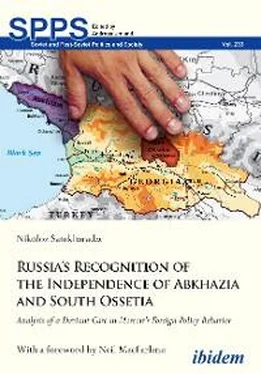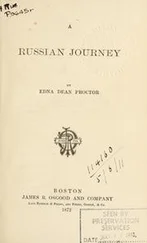ibidem-Press, Stuttgart
AKP Justice and Development Party (Turkey)
AR Autonomous Republic
ASSR Autonomous Soviet Socialist Republic
BTC Baku-Tbilisi-Ceyhan oil pipeline
CENTO The Central Treaty Organisation
CFE Treaty on Conventional Armed Forces in Europe
CIS Commonwealth of Independent States
CoE Council of Europe
CPSU Communist Party of the Soviet Union
CSCE Conference on Security and Cooperation in Europe
CST Collective Security Treaty
DRG Democratic Republic of Georgia
EAPC Euro-Atlantic Partnership Council
EC European Communities
ECHR European Court of Human Rights
EU European Union
FLN National Liberation Front of Algeria
FRG Federal Republic of Germany
GA General Assembly
GDP Gross Domestic Product
GDR German Democratic Republic
GPRA Provisional Government of Algerian Republic
GSSR Georgian Soviet Socialist Republic
GU(U)AM Georgia, Ukraine, (Uzbekistan), Azerbaijan, Moldova
ICJ International Court of Justice
IIFFMCG The Independent International Fact-Finding Mission on the Conflict in Georgia
JCC Joint Control Commission
KGB Committee of State Security of the Soviet Union
KLA Kosovo Liberation Army
MAP Membership Action Plan
MFA Ministry of Foreign Affairs
NATO Northern Atlantic Treaty Organisation
NKR Nagorno Karabakh Republic
OAU Organisation for African Unity
OSCE Organisation for Security and Cooperation in Europe
PACE Parliamentary Assembly of the Council of Europe
PD Prisoner’s Dilemma
PISG Provisional Institution of Self-Government in Kosovo
PPP Pakistan People’s Party
PRC People’s Republic of China
RF Russian Federation
RSFSR Russian Soviet Federal Socialist Republic
RSK Republic of Srpska Krajina
SC Supreme Council
SEATO South East Asian Treaty Organisation
SFRY Socialist Federal Republic of Yugoslavia
SSR Soviet Socialist Republic
TMR Transnistrian Moldovan Republic
TRNC Turkish Republic of Northern Cyprus
UK United Kingdom of Great Britain and Northern Ireland
UN United Nations
UNFICYP UN Peacekeeping Force in Cyprus
UNMIK United Nations Interim Administration Mission in Kosovo
UNOMIG United Nations Observer Mission to Georgia
UNSC United Nations Security Council
UNSG United Nations Secretary-General
UNSIMIC United Nations Settlement Implementation Mission in Cyprus
UNTAET United Nations Transitional Administration in East Timor
USA United States of America
USD United States Dollar
USSR Union of Soviet Socialist Republics
WW World War
Contents
List of Acronyms
Foreword
1. Introduction
2. Self-Determination, Secession and Recognition in International Law
2.1. Introduction
2.2. The Principle of Self-Determination in International Law
2.2.1. Sources of International Law
2.2.2. Historical Background
2.2.3. Self-determination in International Law
2.2.4. Court Decisions
2.2.5. Historical Title vs. Self-Determination
2.2.6. International Practice
2.2.7. Conclusion
2.3. Secession in International Law
2.3.1. What is Secession?
2.3.2. Secession in International Law
2.3.3. Remedial Secession
2.3.4. Secession in Violation of International Law
2.3.5. Court Opinions
2.3.6. International Practice
2.3.7. Conclusion
2.4. Recognition in International Law
2.4.1. What is Recognition?
2.4.2. Evolution of Recognition
2.4.3. Theories of Recognition
2.4.4. Criteria of Statehood
2.4.5. Criteria for Recognition
2.4.6. Modalities and Forms of Recognition and Non-Recognition
2.5. Conclusion
3. The Soviet and Russian Practice of Recognition of New States after 1945
3.1. Introduction
3.2. Recognition of States Emerging out of Colonial Rule
3.3. Recognition of States Outside of the Colonial Context
3.3.1. Group 1—Recognition of Israel and Bangladesh
3.3.2. Group 2—Recognition of Eritrea, East Timor, South Sudan
3.3.3. Group 3—Non-Recognition of Northern Cyprus, Karabakh, Transnistria, Kosovo
3.4. Conclusion
4. Russian Recognition of Abkhazia and South Ossetia
4.1. Introduction
4.2. History of Conflicts and Peace Processes in Abkhazia and South Ossetia
4.2.1. The Status of Abkhazia and South Ossetia Within Georgia in the Soviet Era
4.2.2. The Outbreak of Conflicts and Subsequent Peace Process
4.3. Georgian-Russian Relations in 1991-2008
4.4. Georgia-Russia War
4.5. Reasons for Russia’s Recognition of Abkhazia and South Ossetia
4.6. Theoretical Framework
4.7. Conclusion
5. Conclusion
Bibliography
Russia’s diplomatic recognition of Georgia’s secessionist territories of Abkhazia and South Ossetia at the end of August 2008 was a momentous event. It breached Russia’s (and the USSR’s) longstanding embrace of the international legal principles of sovereignty and territorial integrity, which was reaffirmed in the founding documents of the Commonwealth of Independent States. It also jeopardised Europe’s post-World War II territorial settlement based on those principles. In these respects, it appeared to present a fundamental challenge to the European and international legal and political order.
It was also a curious event. In justifying their actions in legal terms, Russian spokespersons cited the right of defence against aggression, the right to national self-determination, and the responsibility to protect, the right to protect Russian citizens outside the country, and to protect Russian peacekeepers stationed in South Ossetia. This scattershot (spaghetti on the wall) approach suggested a certain amount of confusion and “grasping at straws” in the Russian legal approach.
Ambiguity prevailed also in Russian political reasoning for the decision. Was it a response to the April 2008 NATO Bucharest Declaration and the prospect of eventual Georgian membership in the alliance, given Russia’s claim to a zone of “privileged interest” in the former Soviet space? Was it payback for NATO intervention in Kosovo and the subsequent recognition of that territory by many Western states? Was it an opportunity to demonstrate Russia’s return to great power status? Was it a manifestation of Putin’s antipathy towards colour revolutions and concern over possible demonstration effects in Russia itself? Or was it a manifestation of personal animus, given that Putin and Saakashvili despised each other?
When viewed comparatively, one notes that recognition has not been repeated in other similar situations in, for example, Transnistria, Nagorno-Karabakh, and eastern Ukraine. Why just Georgia?
Russian experts themselves had no clear understanding of the reasons for recognition, as I discovered in long conversations in Moscow in 2009.
This book constitutes an able and well-informed effort to sort out the confusion. It begins with a careful unpicking of relevant international law on self-determination, secession, and recognition. It continues through a close examination of the historical and political background to the conflicts in Abkhazia. Finally, it turns to Russia, discussing Soviet/Russian historical behaviour on recognition, establishing the deviant quality of the recognition decisions regarding Georgia’s breakaway territories. The analysis then turns to the evolution of Georgian-Russian relations, and the war and recognition. This leads to an illuminating discussion of Russian reasons for recognition.
In short, Dr. Samkharadze’s book is a worthy addition to the literature on these events and their broader implications. It is well worth reading in the academic and policy analysis communities.
Читать дальше












